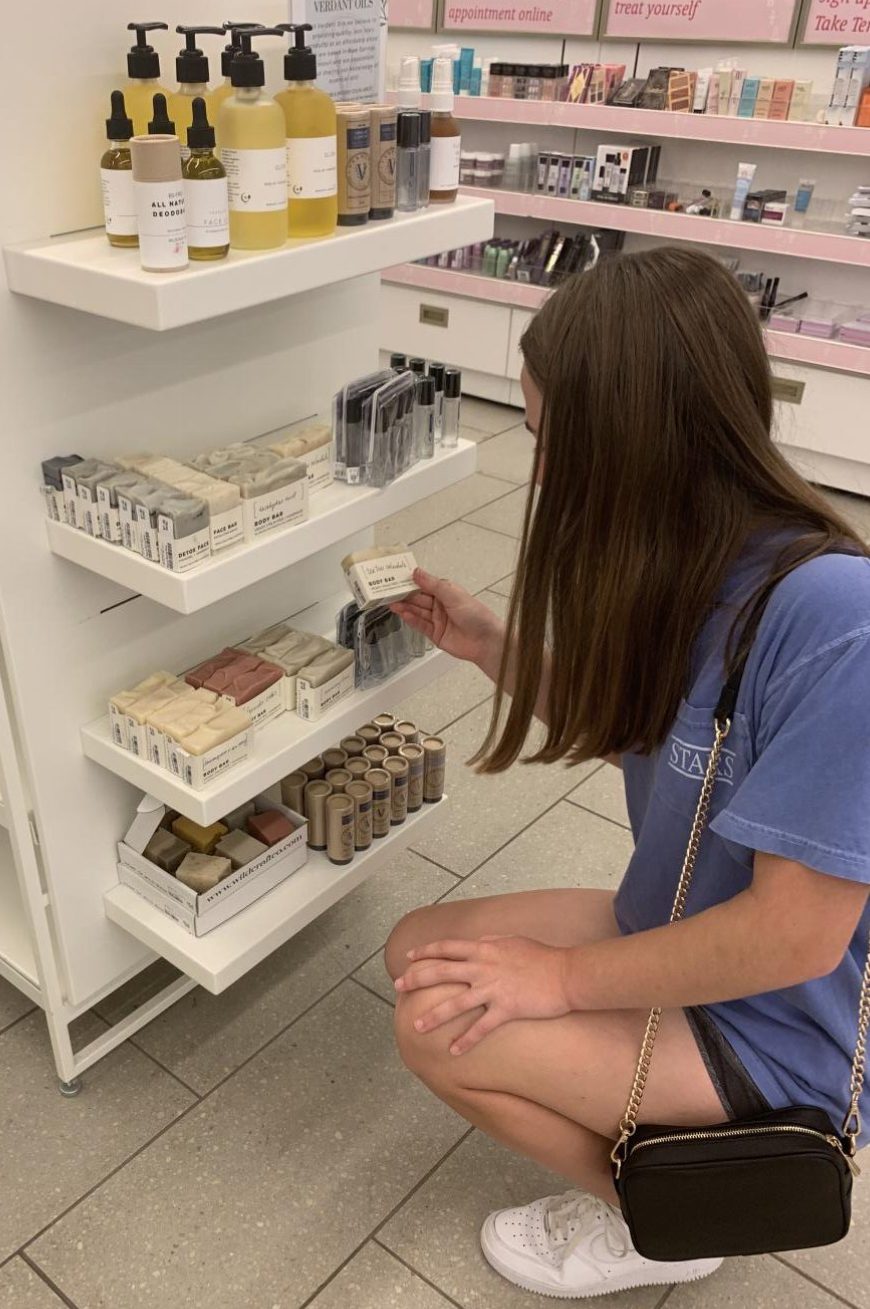KC companies embrace sustainability
Businesses around Kansas City have become more environmentally friendly by using low waste packaging and responsibly sourced materials for their products.
September 19, 2019
A single plastic bag begins its journey in a factory as natural gas or oil, which are then refined into ethane or propane, according to the Plastics Industry Association. The materials are heated and molded into the recognizable shape of a bag. This plastic bag, along with billions of others, is then shipped to stores nationwide to be used to package products. The bag could then be recycled and made into another plastic bag. However, only 10% of plastics in the U.S. are actually recycled, according to the United States Environmental Protection Agency. Rather, the plastic will end up accumulating in landfills, the ocean or other natural environments. Then, it is incinerated along with other trash which releases carbon dioxide and air pollutants into the atmosphere. It can also choke and strangle marine life if it ends up in the ocean.
This cycle is repeated millions, if not billions, of times annually as single use plastics are used frequently in the world today, according to The New York Times. However, there are many companies not only moving away from plastic but using sustainable materials for every aspect of their business . Kansas City companies are no exception, with Wild Wash Soap Co., CanIHaveABite cafe and the Roasterie Cafe focused on becoming more environmentally friendly.
Wild Wash Soap Co., located in Downtown Kansas City, is a skin care company selling soap, deodorant, perfume, moisturizer and makeup in low waste packaging. Wild Wash uses only natural ingredients and avoids the use of palm oil due to deforestation and habitat loss in the process of obtaining it. Owner Sarah Preu founded Wild Wash to fill a need of her own.
“I had a problem finding products that matched my own philosophy,” Preu said. “So, for one, it was just finding ingredients that were healthy for me to use for long term then healthy for the planet, because usually those things are pretty well intertwined.”
This holistic view of sustainability is shared by CanIHaveABite, an organic carryout cafe located in Brookside that offers healthy omnivore and vegan meals. Owner Kathy Hale stressed the importance of using ingredients from small, local farms.
“It does make a difference to support small farmers,” Hale said. “For organic or even just small farmers, the farming is different from large-scale factory farms.”
Organic farmers use minimal chemicals, while large-scale farms often use pesticides and herbicides. Agriculture, mainly larger farms, is the leading polluter of lakes and rivers, according to the EPA. The Roasterie, a cafe with eight locations in the Kansas City metro, also sources ingredients from smaller, organic farms. The Roasterie supports small coffee farmers in Latin America, South America, Africa and Oceania. Assistant coffee buyer and director of sustainability Ellie Anderson-Smith explained the Roasterie offers many coffees that are grown organically and sustainably.
“So we, like I said, do research that our coffee is being farmed in a sustainable way-making sure that it’s actually in thriving and healthy ecosystems,” Anderson-Smith said. “We make sure that coffee producers are being compensated and paid fairly for their work. Making sure that they can produce coffee for decades to come, not even for us but for the whole world.”
In addition to using organic ingredients from small farmers, CanIHaveABite uses plant-based compostable packaging. Many restaurants and carryout places use plastic or recycled plastic containers. CanIHaveABite, on the other hand, uses only compostable packaging in order to give back to the earth. They also have a bin of food scraps that is picked up by Missouri Organic Recycling to be composted.
“For composting, it really goes straight back into the earth,” Hale said. “Recycling, for one, has to be cleaned or it’s just going to go into trash.”
Wild Wash also uses compostable packaging. Many big box makeup brands, such as SmashBox, Mario Budescu and Urban Decay have started using low waste packaging made of recycled plastic in order to reduce the usage of single-use plastics. Preu believes, however, that the skincare industry shouldn’t use any plastic at all.
“I think the move is away from plastic and towards reusable containers and highly recyclable containers,” Preu said. “There’s only so many times the plastic is going to be reused and typically it’s a one-time thing. So, it’s better to keep the plastics out of the entire waste stream.”
While supporting eco-friendly companies is important, Preu emphasized that consumers must also do their own research in order to become more eco-friendly themselves. She explained that podcasts such as United Plant Savers and For the Wild can be helpful educational tools. Most importantly, Preu believes consumers should use this research to guide what companies they support and the purchases they make.
“Start educating yourselves now and finding organizations to follow that provide great guidance on the most pressing environmental issues we have,” Preu said. “Make this the defining issue that determines how you spend your money and the corporations will pay attention.”
